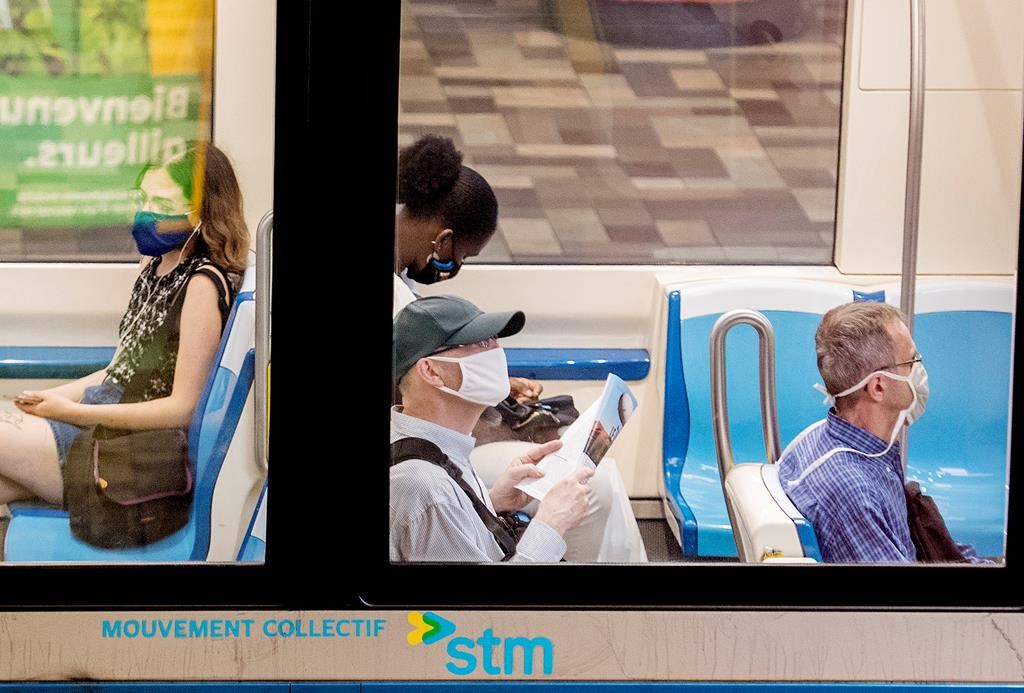A survey commissioned by Quebec health authorities on attitudes and behaviours around COVID-19 has found that nearly one-quarter of respondents believe the novel coronavirus was created in a laboratory.

The Institut national de Santé Publique — the province’s independent public health institute — published the results Monday of online polls conducted earlier this year.
While one-third of respondents felt the pandemic was being exaggerated in the media, a growing number also said they wear a mask because it helps protect others.
The poll also mentioned conspiracy theories surrounding COVID-19, finding that nearly 35 per cent of Quebecers believe the provincial government is hiding important information about the virus.

Twenty-three per cent of those polled in June said the virus was made in a lab, an equal number said they were unsure, and 54 per cent disagreed with the statement.
Just six per cent said they believe the conspiracy theory linking the virus and 5G cellphone technology — the fifth-generation technology standard for cellphone companies that is progressively being rolled out worldwide.
The institute says respondents under the age of 60, those whose incomes have been reduced by the pandemic and those with only a high school education were more likely to believe conspiracies about the virus.
The online survey, which cannot be assigned a margin of error because online polls are not considered random samples, involved 1,000 adult Quebecers between March 21 and May 31, with an additional 2,000 adults surveyed during a three-day period in June.
- Canadian man dies during Texas Ironman event. His widow wants answers as to why
- ‘Sciatica was gone’: hospital performs robot-assisted spinal surgery in Canadian first
- Canadians more likely to eat food past best-before date. What are the risks?
- Invasive strep: ‘Don’t wait’ to seek care, N.S. woman warns on long road to recovery




Comments